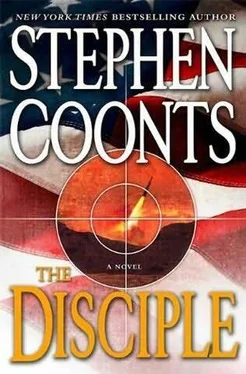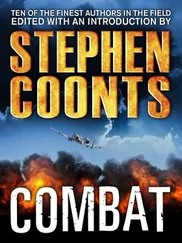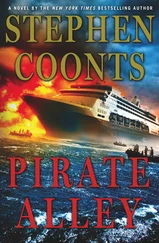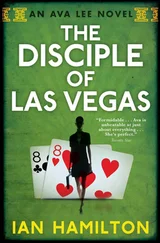Stephen Coonts - The Disciple
Здесь есть возможность читать онлайн «Stephen Coonts - The Disciple» весь текст электронной книги совершенно бесплатно (целиком полную версию без сокращений). В некоторых случаях можно слушать аудио, скачать через торрент в формате fb2 и присутствует краткое содержание. Жанр: Триллер, на английском языке. Описание произведения, (предисловие) а так же отзывы посетителей доступны на портале библиотеки ЛибКат.
- Название:The Disciple
- Автор:
- Жанр:
- Год:неизвестен
- ISBN:нет данных
- Рейтинг книги:4 / 5. Голосов: 1
-
Избранное:Добавить в избранное
- Отзывы:
-
Ваша оценка:
- 80
- 1
- 2
- 3
- 4
- 5
The Disciple: краткое содержание, описание и аннотация
Предлагаем к чтению аннотацию, описание, краткое содержание или предисловие (зависит от того, что написал сам автор книги «The Disciple»). Если вы не нашли необходимую информацию о книге — напишите в комментариях, мы постараемся отыскать её.
The Disciple — читать онлайн бесплатно полную книгу (весь текст) целиком
Ниже представлен текст книги, разбитый по страницам. Система сохранения места последней прочитанной страницы, позволяет с удобством читать онлайн бесплатно книгу «The Disciple», без необходимости каждый раз заново искать на чём Вы остановились. Поставьте закладку, и сможете в любой момент перейти на страницу, на которой закончили чтение.
Интервал:
Закладка:
In the adjacent control room, everyone died instantly as the control panel, which faced the reactor, was driven into them by the successive shock waves. The control room was completely crushed, which was fortunate, because anyone surviving the initial blast would have been cremated alive by the resulting inferno or quickly poisoned by the radiation released from the nuclear pile.
In the F-15 the photographer was capturing all of it. Later, technicians examining the photos would be able to count each individual explosion. The guidance system in every bomb had worked flawlessly. The Americans made good stuff.
Now, through the viewfinder, the photographer saw smoke pouring out of the reactor and adjacent administration building. Soon the rising smoke obscured the buildings, so he released the shutter button. He waited a moment, watching the smoke column, which he knew was radioactive. It seemed to be drifting off toward the desert to the southeast, just as the weather gurus predicted it would.
“Let’s go home,” he said to the pilot, who banked the jet smoothly around onto a heading back to Israel.
Mikhail Toporov heard the explosions over the wail of the siren. He ran outside. The antiair defense center was on a low ridge two miles from the reactor. He stood stupefied as black smoke roiled up from the place where the reactor and admin building had stood. Their remains were hidden by the smoke.
That was no meltdown-he knew that. Airplanes. Bombs!
The Syrian in charge of the facility joined him. “What happened?” he demanded in Russian, the only language that Toporov spoke, as he jerked at Toporov’s sleeve.
“Look for yourself, fool,” Toporov roared, gesturing wildly with his free hand. He jerked his other arm free and went back inside, the Syrian trailing closely.
“Why didn’t your radars detect the planes?” the Syrian screamed over the high-pitched blast of the siren. He, too, had leaped to the conclusion that the facility was bombed.
“I don’t know,” Mikhail Toporov replied bitterly. He was very worried. The people in Moscow, he knew, would be apoplectic when they heard the news. First and foremost, he must get possession of the tape that recorded everything the radars saw during the last hour. Only with that tape could he prove that the S-300 air defense system-a combination of radars and computers that controlled batteries of SA-20 antiaircraft missiles-failed to detect the incoming bombers. Only with that tape could he save himself.
When the warplanes landed in Israel, two men in civilian clothes stood outside the operations building watching them. One was about five and a half feet tall, heavyset, with a rounded tummy and a crew cut. He wore khaki trousers and a white short-sleeve shirt with buttons down the front and a pocket protector in the left breast pocket. His name was Dag Mosher, and he was a senior officer in Israeli intelligence, the Mossad.
The man beside Mosher was an American. A half foot taller than Mosher, he was lean, with graying, thinning hair combed straight back. His face was not handsome; he had a square jaw, gray eyes and a nose that was a trifle large. His face and arms were tanned. He was wearing blue jeans and a pullover golf shirt with a logo on the left breast that he had apparently acquired at some summer festival in the States. He was the new CIA head of Middle Eastern Operations, and his name was Jake Grafton.
They watched the planes shut down in revetments. The crews were picked up by a little van, which brought them to this building and let them out in front of it. Still in their flight gear, the pilots and Weapons Systems Operators straggled into the building carrying their helmets and chart bags. Mosher and Grafton followed them.
The civilians sat in the back of the room and listened to uniformed intelligence officers debrief the flight crews. Neither asked a single question. An hour later, as the crews gathered their gear to leave, a technician brought in bomb-damage assessment photos of the target reactor and taped them to the blackboard. Mosher and Grafton strolled to the front of the room and, when the flight crews had had their looks and left, adjusted their reading glasses and studied the photos carefully.
The intelligence debriefers packed up their gear and departed. When only Mosher and Grafton were left in the room, Grafton dropped into a folding chair and asked the Israeli, “Are you guys going to do Iran?”
“You know we can’t without aerial tankers. We’d need to borrow some of yours.”
“Anything you bomb in Iran will release radioactivity. Lots of it.” “Their problem,” Dag Mosher said and dropped into a chair beside Grafton. He sat looking up at the row of photos.
Finally he turned to Grafton. “All the choices are bad-every one has a great many negatives attached. I certainly am not one of the decision-makers, but I can tell you this: If Israel is destroyed, it will only be because we gave every last drop of blood and that wasn’t enough. We Jews got in line and shuffled into the gas chambers once-but never again. Never!”
Mosher turned back to the photos and sat staring at them.
“I think the driving force in Iran for the acquisition of nuclear weapons,” Grafton said conversationally, “and perhaps the destruction of Israel, is Mahmoud Ahmadinejad. One wonders what might happen in Iran if he died unexpectedly.”
Dag Mosher turned slowly to face Grafton. He sat silently, examining his face. Finally he said, “Was that thought hatched in Washington, or did you dream it up?”
“Well, I’m kinda new to the Middle East,” Jake Grafton drawled, “and, I confess, I thought that one up all by my own self. There’re probably a hundred good reasons not to pop Ahmadinejad. Not cricket, bad form, and all that. You won’t hold this against me, will ya?”
A trace of a smile appeared on Mosher’s face; then he turned back to the photos.
“Same country, different subject,” Jake Grafton continued. “I’ve sent one of my best men to Iran, and he’s going to need all the help he can get. I was wondering, do you folks have a few people there who can discreetly watch his back? I would appreciate a heads-up if he appears to be getting in too deep.”
Dag Mosher looked amused. “Tommy Carmellini, perhaps?” he asked casually.
“Why, yes,” Grafton said with a smile. “Let’s hope the Iranians are not as well informed as the Mossad.”
“We can always hope,” Mosher admitted.
CHAPTER TWO
The air attack upon and destruction of Syria’s nuclear reactor was a media nonevent. Nothing about the attack appeared in either Syrian or Israeli newspapers or broadcasts. The Syrians quickly began cleaning up the reactor site, using the expedient of pushing dirt into the hole with bulldozers, then pouring in concrete. Syria did, however, ask the UN for sanctions against Israel for violating Syrian airspace and attacking a “military storage area.” These sanctions failed when Syria refused to allow an inspection of the attack site and, attempting to silence rumors, denied that it even had a nuclear reactor.
Still, whispers swirled through the diplomatic community worldwide. Unable to stonewall any longer, the Syrians decided to change the lie. A week after the event, the Syrian minister of information acknowledged that Syria had had a reactor under construction, a reactor at least seven years from completion, and that was the site bombed by the Israelis.
Still, the Western press generally ignored the story. Without verifiable facts the story had no legs, and, after all, even if there had been a reactor, the Syrians didn’t have one now.
The unofficial, nonpublic reaction in various capitals around the world was less tepid.
In Washington the president was briefed on the attack over breakfast by his new national security adviser, Dr. Jurgen Schulz, and the director of the CIA, William S. Wilkins. Rounding out the foursome was presidential aide Sal Molina, who this morning was togged out in a sports coat that didn’t go with his trousers. Schulz was dressed as usual in a tailored wool suit and silk tie; he was trim, with a full head of dyed hair, thickened, some suspected, with hair implants. He looked like a natty Harvard professor on government leave, which he was.
Читать дальшеИнтервал:
Закладка:
Похожие книги на «The Disciple»
Представляем Вашему вниманию похожие книги на «The Disciple» списком для выбора. Мы отобрали схожую по названию и смыслу литературу в надежде предоставить читателям больше вариантов отыскать новые, интересные, ещё непрочитанные произведения.
Обсуждение, отзывы о книге «The Disciple» и просто собственные мнения читателей. Оставьте ваши комментарии, напишите, что Вы думаете о произведении, его смысле или главных героях. Укажите что конкретно понравилось, а что нет, и почему Вы так считаете.












